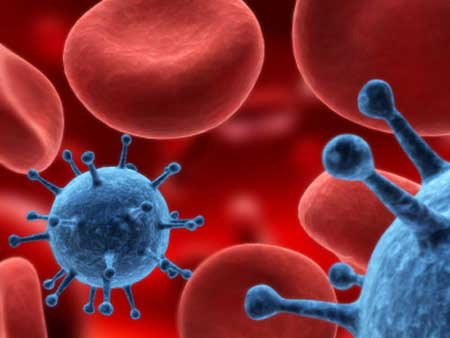Superbug outbreak ruled out
Medical scientists in China ruled out Wednesday a prominent outbreak of a newly identified superbug that is believed to be highly resistant to almost all antibiotics, but they conceded that measures are already in place in the country's health system to monitor its development.
 |
|
The precaution comes as public health authorities confirmed Wednesday to the Global Times that there was no infection of this kind in China so far. [Photo:Xinhua] |
The precaution comes as public health authorities confirmed Wednesday to the Global Times that there was no infection of this kind in China so far. The World Health Organization said that it was not aware of any superbug cases in China, according to Vivian Tan, spokesperson at the WHO's Beijing office.
Researchers said they had found a new gene called New Delhi metallo-beta-lactamase, or NDM-1, in patients in countries such as Japan, Britain and the United States, which would make bacteria resistant to antibiotics, prompting experts' fears that there are no new drugs to tackle it.
Timothy Walsh, from Britain's Cardiff University, told Reuters that he feared the new superbug could soon spread across the globe.
"Because of medical tourism and international travel in general, resistance to these types of bacteria has the potential to spread around the world very, very quickly. And there is nothing in the (drug development) pipeline to tackle it," he said.
In a study published in The Lancet Infectious Diseases Journal Wednesday, Walsh's team claimed to have found that NDM-1 was becoming more common in South Asia, such as Bangladesh, India and Pakistan, and was also imported back to Britain in patients returning after treatment.
"India also provides cosmetic surgery for other Europeans and Americans, and it is likely NDM-1 will spread worldwide," the scientists wrote in the study.
Worldwide calculation of infectious cases and the death toll from NDM-1 were not immediately available from the WHO.
David Livermore, with the London-based Antibiotic Resistance Monitoring & Reference Laboratory, told the Global Times that statistics are difficult to obtain due to the lack of a unified global diagnosing and monitoring mechanism for this specific superbug.
Five out of 28 infected patients in Britain died, but it was unclear whether NDM-1 could be identified as the cause of their deaths, Livermore said.
The first case was a Swedish national who became infected in an Indian hospital at the end of last year.
The new superbug gene was then detected in patients in countries such as Australia, Canada, the Netherlands, Sweden and most recently in Japan, though in small numbers.
Ni Yuxing, the director of Department of Clinical Microbiology at Shanghai-based Ruijin Hospital, told the Global Times that his institution is among the 19 hospitals across the country appointed by health authorities to monitor the spread of the superbug.
These hospitals are required to report to the ministry any suspected infection within 12 hours of discovery, he said.
Liu Youning, chairman of the Chinese Society of Respiratory Diseases, told the Global Times that NDM-1 is spread through direct contact, and any outbreak can be controlled by improving personal hygiene, especially washing your hands more often.
Zhong Nanshan, a renowned epidemiologist, warned that abuse of antibiotics could make China more vulnerable to NDM-1, in an interview with the West China City Daily.
During a phone interview with the Global Times, Lü Yuan, vice director of the In-stitute of Clinical Pharmacology at Peking University First Hospital, agreed that drug resistance developed due to the improper use of antibiotics.
She noted that NDM-1 is not the only bacteria found to have a fierce resistance to drugs, so it is unnecessary to overact.
"Even with the regular use of antibiotics, bacteria can develop a resistance to drugs. Improper use would accelerate the process," she said.
The Beijing Health Bureau established a drug-resistance monitoring network Tuesday aimed at overseeing the bacterial drug-resistance conditions in various hospitals, and guiding the prescriptions by doctors, Lü said. The network will keep a close eye on the spread of NDM-1 in Beijing by collecting data on medicine usage and clinical feedback.
 0
0 






